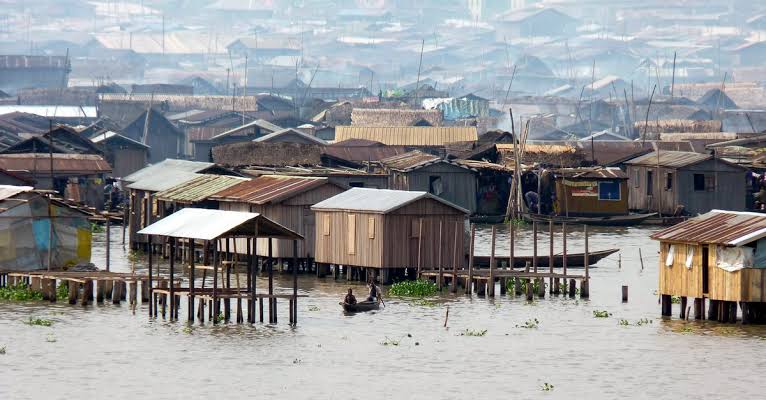
Idiongo Marcus
There are a lot of problems affecting Nigerians today, many of them propagated by Illiteracy, Poverty and a lack of serious Government concern and actions to curtailing it. Amongst these problems, some of the most debilitating and life threatening are the lack of portable water and safe toilets.
According to the World Health Organisation (WHO), 1 in 3 persons does not have access to clean water and about 60% per cent of the world’s population does not have access to a safe toilet. This means they resort to using open spaces, bushes, gutters and even rivers to dispose of waste which is very unhealthy as it leaves them vulnerable to illnesses and diseases, especially with women and children. According to UNICEF, about 70,000 children under five die annually because of the effects of their environment and the quality of water that are available to them. Diarrhoea, Cholera and lower respiratory problems and diseases are amongst the biggest causes of death in Nigeria as reported by the Institute of Health Metric and Evaluation. This can be linked to a lack of water and basic Toilet facilities, called Water and Sanitation Hygiene (WASH).
Nigeria as a country is dominated by situations like this, though there have been improvements in terms of pipe-borne water over the years because people in towns, disgruntled by the government’s langurous attitude to distributing safe portable water have resorted to sinking boreholes for themselves. Sadly, the same cannot be said for good toilet facilities. This is because a significant amount of the population still lacks access to good toilets even in urban and semi-urban areas because some home owners do not think it is financially prudent to invest in safe toilets, especially in rural areas. The lack of access to pipe-borne water and toilets is more common in rural and semi-rural areas because they don’t have the means to get one or are not bothered about it.
Pipe-borne water is considered safer for water-related activities than wells and stream water. This is because they travel through pipes from the ground and are not contaminated with dirt like faeces, pollution and industrial waste. They are free of this and cannot be easily contaminated on their way to use.
According to a 2020 report by premium times, less than 10% of the Nigerian population has access to pipe-borne water. This went from 21 million people in 2018 to 18 million in the following year, though there has been considerable improvement in these numbers recently. According to recent reports, up to 60% of the Nigerian population has access to pipe-borne water and this figure is believed to be on the rise. The problem of pipe-borne water is commonly seen in rural areas more than in urban areas. People without access to pipe-borne water are often those in rural areas, semi-rural areas, informal settlements and indigenous and impoverished communities.
Places with lack of access to pipe-borne water are prone to diseases like diarrhoea and cholera. It is this way because the water might be contaminated by company waste discharges like mercury from companies, human and animal waste. These things combined make streams, rivers, wells and rainwater unhealthy for humans. Also, water bottling companies are poorly regulated, and the result is that they sell contaminated water to consumers.
According to the WHO and UNICEF, about 47% of the Nigerian population lacks access to basic sanitation including toilets and latrines facilities, this figure entails nearly half of the Nigerian populace. According to Health Organizations, a good toilet is clean, safe, and hygienic. It safely and properly disposes of human waste without posing any kind of risk to humans and the environment. Following this definition, we find that a lot of toilet and sanitation facilities even in urban Nigeria lack this requirement.
Nigeria ranked number one in countries practising open defecation in 2021 with India coming second even though they have 5 times more the population of Nigeria. About 46 million Nigerians do not have access to toilets according to UNICEF. This problem poses a huge Social and Health problem to the people of Nigeria, especially those living within the affected area. Open defecation is the effect of an environment without toilets and poses lots of health challenges to women and children. Women are easily affected because of their biological nature and are more prone to toilet diseases, infections and even sexual harassment from perverts because of the nature of their environment and where they go to ease themselves. Children, on the other hand, have a weak immune system and are quickly and easily affected by this problem, health challenges like child stunting, morbidity, mortality, undernutrition and slow mental development.
Beaches and coastal areas are commonly affected by the problems of lack of toilets and by extension, bathrooms because the people resort to using the rivers and streams as a major way of disposing of their waste and this makes it unhealthy for them. Open defecation is a problem that is common in slum areas in Nigeria and almost every affected area.
Makoko Lagos is a prime example, it is a place also known as the Venice of Lagos because it is surrounded by water and is on water. This ‘Venice’ houses tens of thousands of people and almost all of them are subjected to practice open defecation because there is no presence of a toilet only the wooden makeshift toilets which are situated on the river, and some places have none and so are subjected to using what they have – the river – to dispose their waste which rebounds to affects their social and economic life.
WAY FORWARD.
The problem of open defecation is a result of the lack of toilets. Building toilets in public places and rural areas by the government will help to curtail or tame this problem. Sanitation education and awareness are necessary, this will enlighten the people of such localities and tell them expressly the dangers of not using the right facilities when one is available and how this affects them. Community Led Total Sanitation (CLTS) can be organised, where the members of a community come together to jointly clean their environment and toilet facilities. Encouraging members of a community to come together and clean their environment will help promote and maintain a clean and acceptable environment. NGOs like Prime Cornerstone are working towards solving this problem and making available viable solutions for the people like building toilets, getting support from the government and people around them will help them quickly and effectively solve this problem in affected areas.
Campaign programs like the ‘clean Nigeria’ and ‘WASH’ campaigns help spread sensitization on the need for locals to own a toilet and according to researchers, it has been effective and a lot of progress recorded. The government establishing and enforcing environmental and sanitation laws and bodies on the people will go a long way in curtailing the problem. Bodies like the ‘Anti Open Defecation Squad’ that operates in mobile court and punishes offenders once caught are known to be effective in curtailing the problem of lack of toilets.
Furthermore, the Government at all levels must ensure that public toilets are available in public facilities such as Libraries, Hospitals, Schools, ministries and markets, because it is lacking in most of these places as of the moment. You have to pay in most markets to use a toilet that is not even a hundred percent clean or hygienic. They should also ensure that defunct Water Boards are revitalised, with new ones created in communities previously unaffected.
The number of people affected by the lack of access to pipe-borne water and toilet facilities is a common problem affecting those in rural areas and those living below the poverty line, provision of reliable pipe-borne water sources and toilet facilities by the Government, Non Government Organizations and well-meaning individuals will go a long way in curbing this problem in thus providing a healthy and better economic and social life for all those affected by this problem.




Comments (4)
goodness Marcussays:
March 13, 2023 at 9:25 pmyeah
this is one of the problems in Nigeria….. it’s pretty obvious
the solutions are quite practical
Precioussays:
March 13, 2023 at 9:43 pmKeep it up dear Mimi
Kachisays:
March 13, 2023 at 10:39 pmSuccinctly captured and discussed. Kudos to the author.
Adesays:
April 2, 2023 at 6:18 pmThis is great mimi